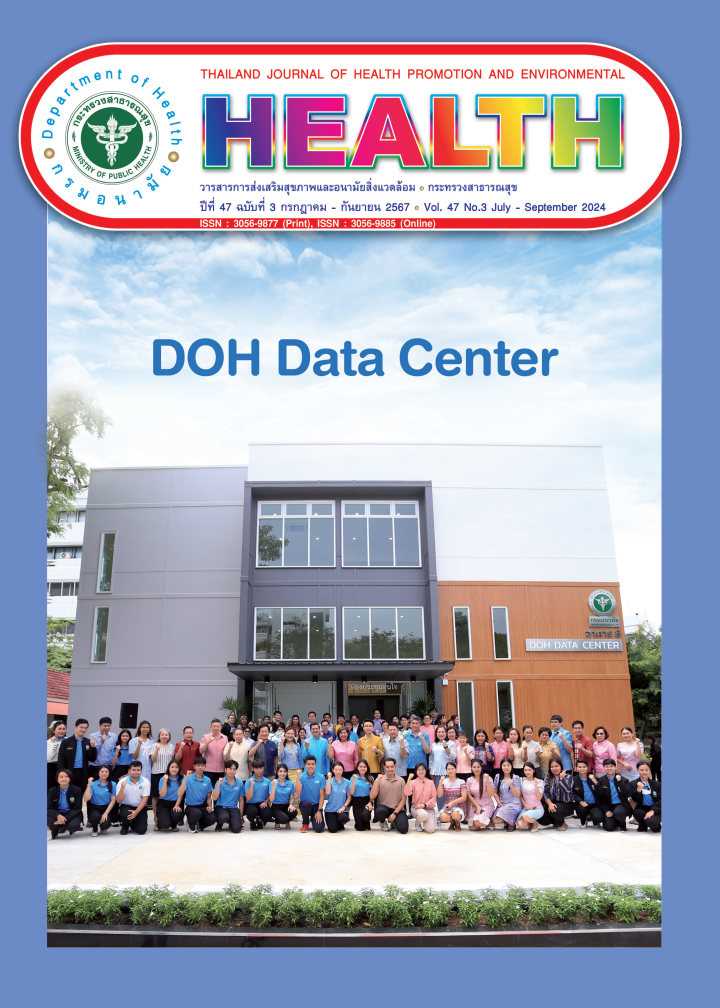Sodium-salt intake assessed through 24-hour urinary sodium excretion: a cross-sectional study in Phatthalung province, 2022
Keywords:
Sodium salt, Urine 24 hours, Phatthalung ProvinceAbstract
This cross-sectional study aimed to estimate the average daily sodium consumption and investigate the demographic factors associated with sodium intake. A stratified two-stage cluster sampling method was employed to select 300 participants. Sodium levels in urine were measured using the Indirect Ion Selective Electrode (Indirect ISE) method. The study was conducted in Phatthalung Province, which encompasses 11 districts, from March to May 2022. The statistical analyses included calculating proportions and 95% confidence intervals (CI) for sodium intake, as well as mean values and 95% CI of the mean for daily sodium consumption. Relationships between variables were examined using the General Linear Model. Results revealed that the average daily sodium intake was 4,880 milligrams, corresponding to an average salt consumption of 12.4 grams per day. Men had a higher average sodium intake than women, with men consuming an average of 5,344 milligrams per day. Elevated sodium consumption was particularly associated with males, individuals aged 20-29 years, single status, living in households with fewer than five members, students, casual laborers, and those with a Body Mass Index (BMI) over 25 kg/m². The General Linear Model did not identify any statistically significant factors associated with sodium consumption exceeding 2,000 milligrams. Base on these findings, it is recommended that relevant authorities implement strategies to reduce sodium intake within the Phatthalung community, especially among high-consumption groups. Measures should include modifying dietary and seasoning practices and promoting healthier eating habits to prevent potential increases in non-communicable diseases in the future
Downloads
Published
Issue
Section
License
Copyright (c) 2024 Thailand journal of Health Promotion and Environmental Health

This work is licensed under a Creative Commons Attribution-NonCommercial-NoDerivatives 4.0 International License.

